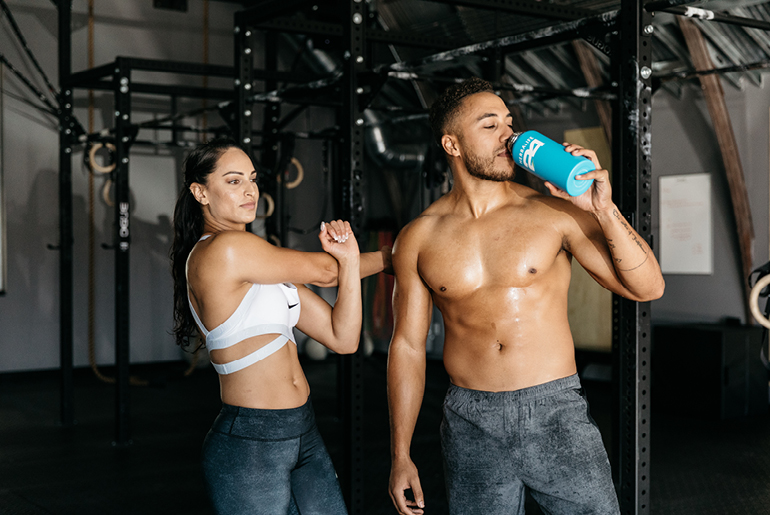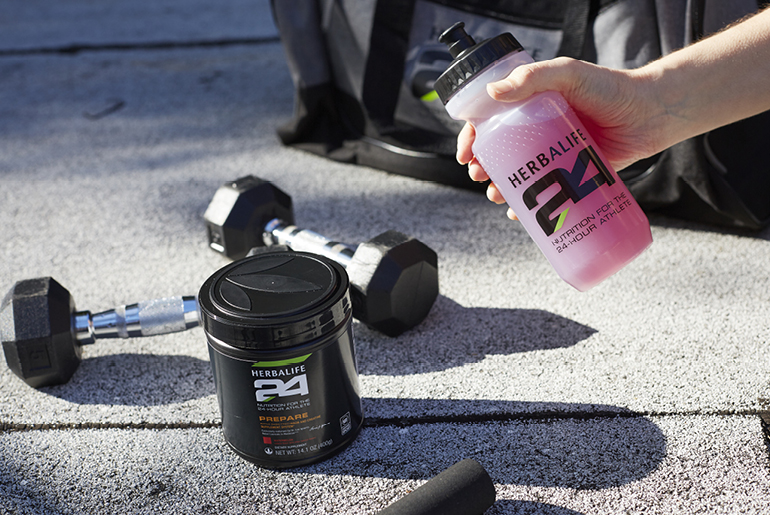Workout Supplements: What to Take Before, During, and After Exercise

Author: Dana Ryan Ph.D., M.A., MBA, Director, Sports Performance & Education
If you’re looking to maximise athletic performance, you may have considered taking workout supplements. Nutrition and a good fitness plan go hand in hand, so the best workout supplements are only as good as your training routine and daily regimen.
This is why it’s important to consider not only what supplements to take but also when to take them.
How to Get the Most Out of Workout Supplements
When thinking about the most effective supplements to take around a workout, it is helpful to think about them in three phases: before, during, and after exercise.
Here is a quick guide for supercharging your workout nutrition:
Pre-Workout
When you have a big game or tough workout session, it’s important to prepare and plan ahead. You’ll want to give yourself a boost by taking a pre-workout supplement with caffeine. Caffeine stimulates your body’s metabolism, which in effect, helps maintain focus and reduces fatigue.
Similarly, a pre-workout supplement with nitric oxide precursors helps with healthy blood flow. Wider blood vessels support the delivery of nutrients and oxygen to working muscles during exercise, which then helps maintain your performance.
During a Workout
While working out, you’ll want to stay hydrated and fueled, so look for sports drinks with a good amount of carbohydrates and electrolytes! Electrolytes can replace valuable nutrients such as sodium, potassium, magnesium, and calcium, which are lost when you sweat.
The combination of carbohydrates and electrolytes will not only replace those valuable nutrients but will also continuously supply your muscles with the glucose required to maintain your performance. The longer and more intense the workout, the more you need!
Post-Workout
Your post-workout nutrition serves two purposes:
1. Refueling what you just burnt off
2. Preparing you for your next workout
This is why you’ll want to focus on protein and high-quality carbohydrates. Protein repairs and rebuilds muscles, which is great for increasing lean muscle mass.
The type of workout you do will determine the ratio of carbohydrates to protein that you’ll need.
- For a more intense workout, you’ll need more carbohydrates, and a good rule of thumb is to maintain a 3:1 ratio with protein. Since you will likely need at least 20 grams of protein post-workout, you will want at least 60 grams of carbohydrates for an endurance workout.
- For a strength-based workout, you won’t require as many carbohydrates, so aim for closer to a 1:1 ratio, meaning you will want around 20 grams of carbohydrates with 20 grams of protein.
The protein can come from whole foods such as chicken or fish; however, many people don’t like eating right after a hard workout, and it’s not always easy to calculate your protein intake from foods. A protein shake is a great, convenient solution after a workout.
No matter the type of workout you are doing, you’ll want to make sure you get your post-workout shake in right after your training! A post-workout shake can come from dairy (whey or casein) protein or from plant-based sources like soy.
What to Look for in Sports and Fitness Supplements
Reading the nutrition label of any dietary product is the first step to ensure you are getting what you need to maximise results. You’ll want to know how many macronutrients you’re consuming, as well as anything extra added.
That said, while getting the right nutrients is incredibly important when working out, it is vital that your supplement is clean. Looking for certifications like NSF for Sport gives you the confidence that your product has been tested for banned substances against the World Anti-Doping Association banned substance list.
Overall, when thinking about workout supplementation, focus on nutrition and create a routine that will help you before, during, and after every training session. This will go a long way to helping you crush your goals!




